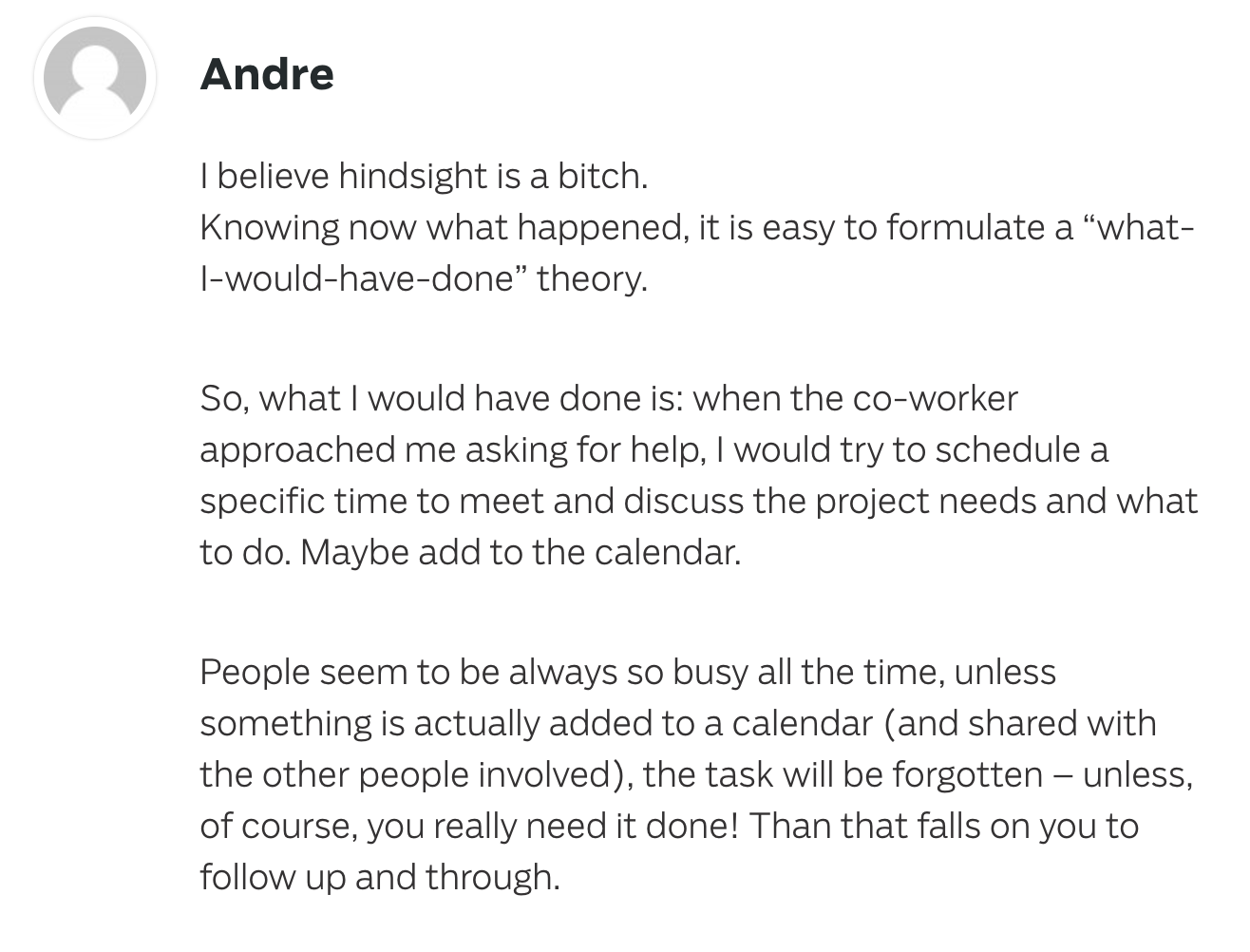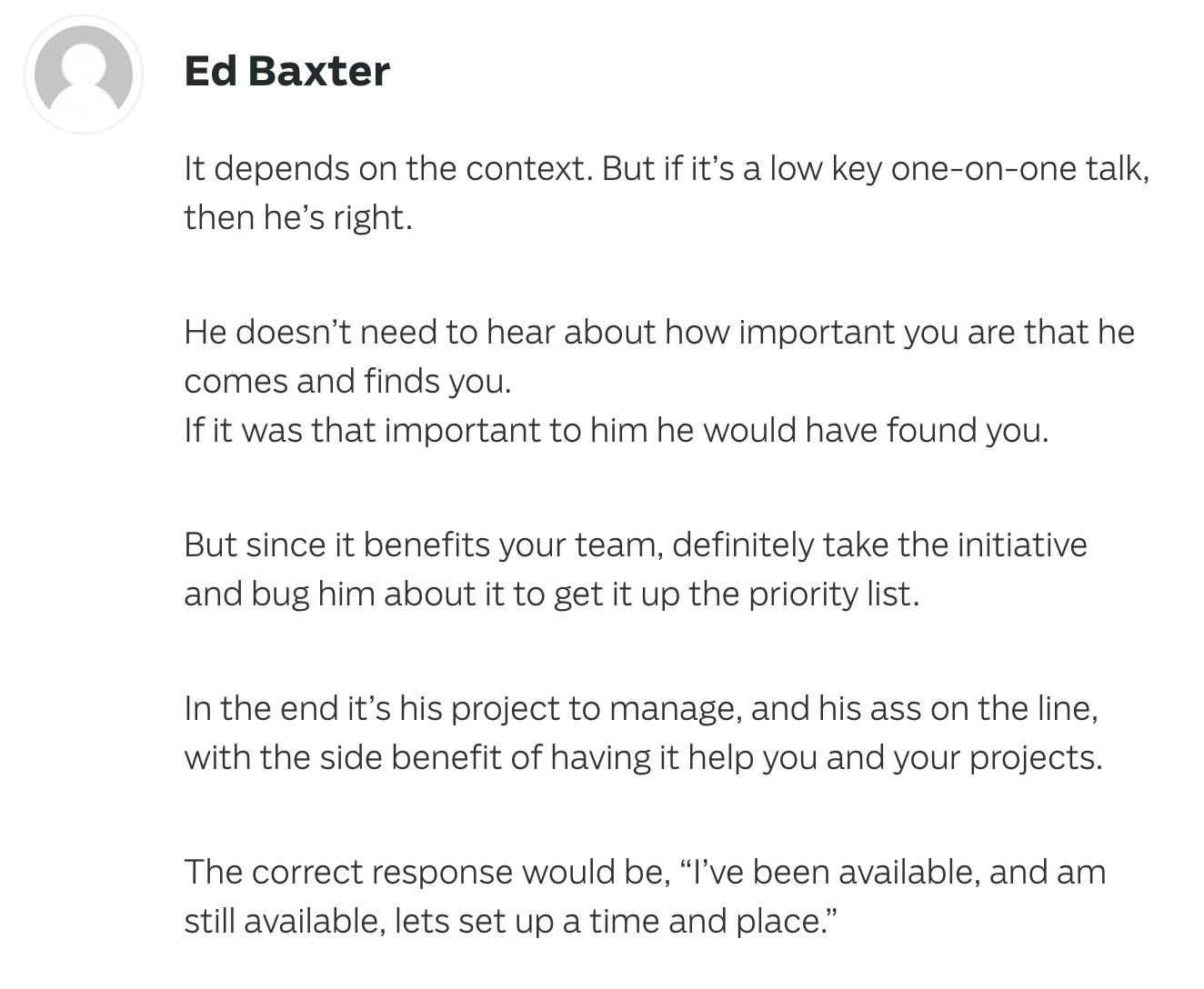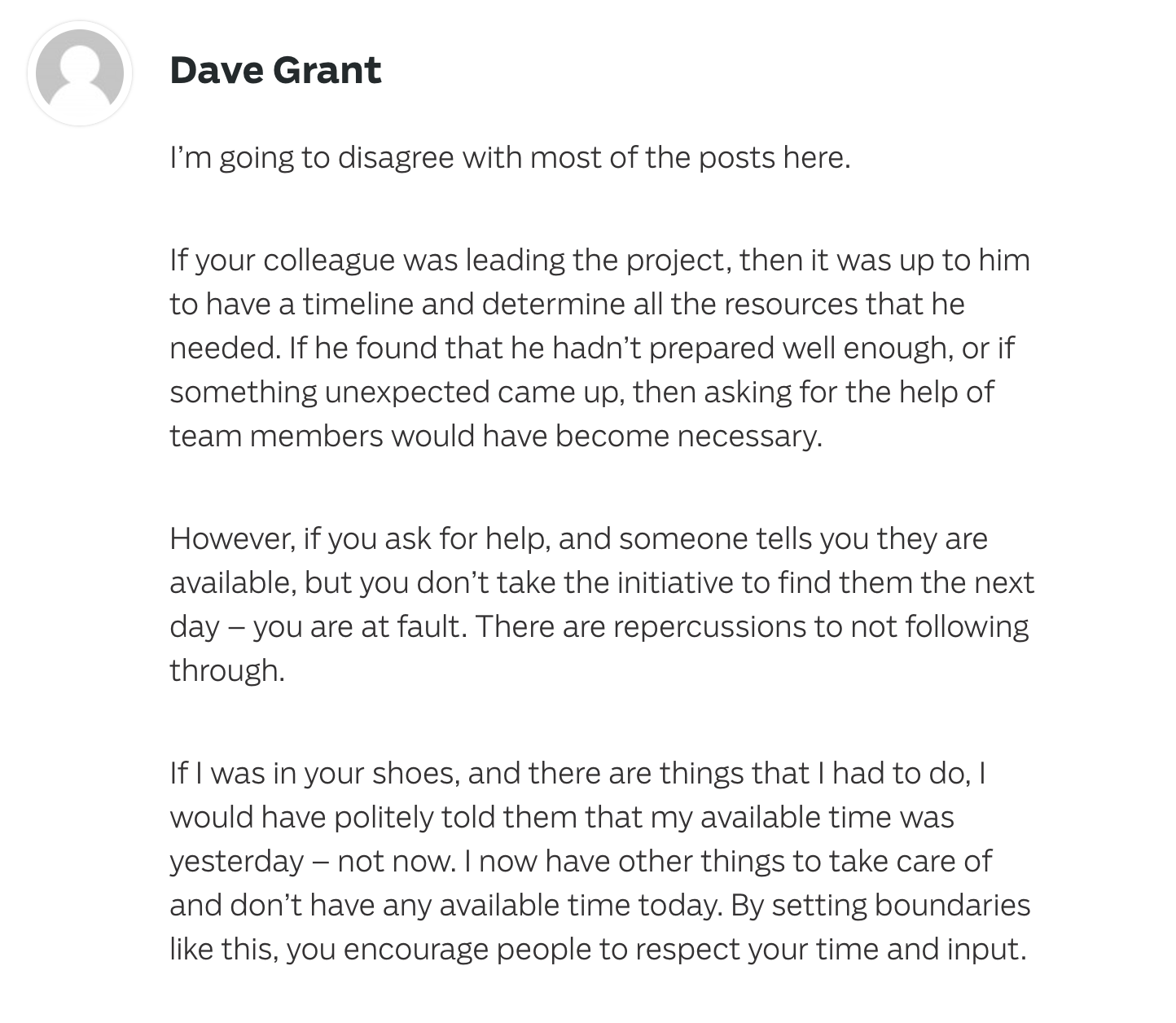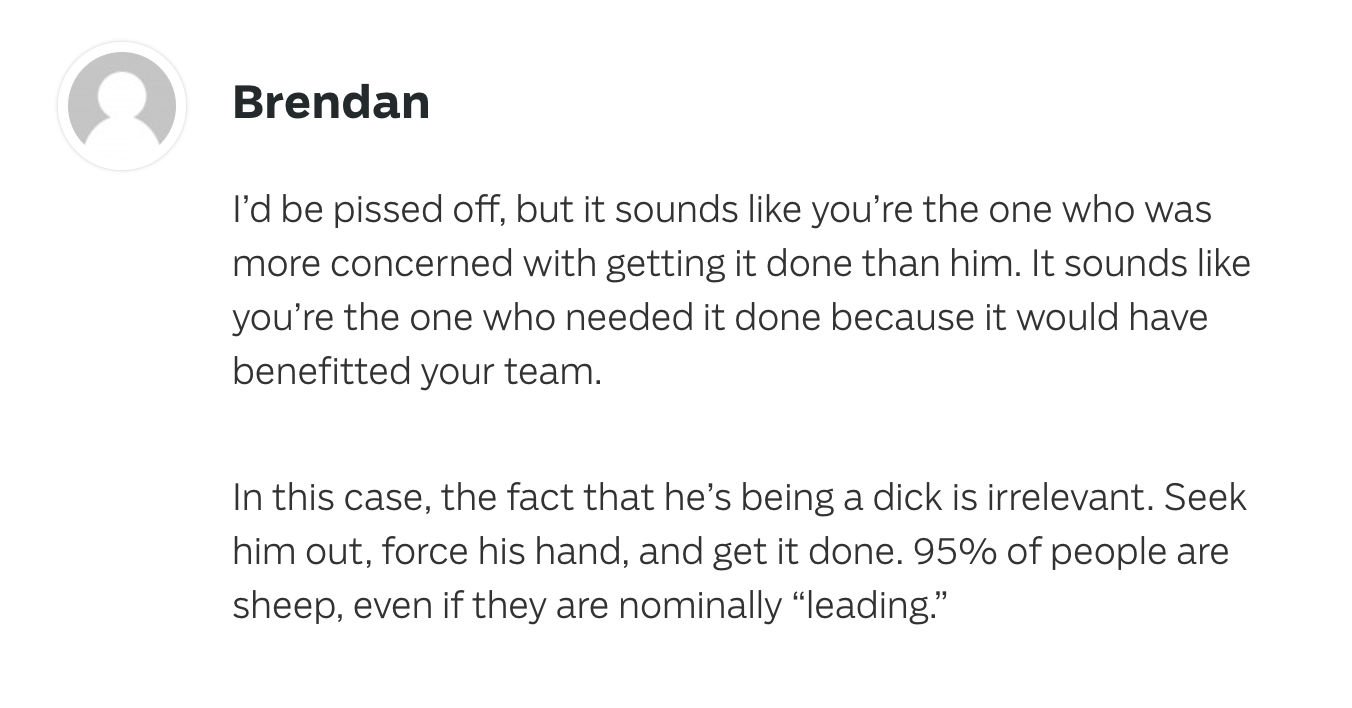
How to Deal with a Difficult Coworker (5 Tips + Scenarios)
I always thought I knew how to deal with difficult coworkers. But there was one incident that made me really want to figure it out.
It was years ago, and I needed to help a co-worker finish a project that:
- He was leading
- Would help my team
Sure, I said. Just find me tomorrow and I’ll show you how to do it.
Well, tomorrow came and went and he NEVER found me.
Later, when he was asked about the project, he just sighed and said it didn’t get done. Then he turned to me and asked if I could help him later with the project.
Dude, you were supposed to find me, I told him sharply.
I know, he said. I was busy. Sometimes if you want someone to do something, you have to go above and beyond.
So I exploded.
Listen, if you need my help, you need to find ME not the other way around.
Then he said something I’ll never forget. Technically, you’re right. But you have to decide if you want to be right or if you want this to get done.
So that got me thinking…is he right? Should my stake in the project have dictated how I should’ve handled the situation? Or was my friend just being a jackass?
I thought I knew the right answer, but I wanted to put it to my readers first: What would YOU have done in this situation? Can you learn how to deal with difficult coworkers without confrontation?
The answers I got back were insightful and funny. I want to share a few of them with you today, and tell you what I think I should have done.
How to Deal with Difficult Coworkers at a Glance:
- Coworker Help Advice #1: Hindsight is 20/20
- Coworker Help Advice #2: Take the Initiative
- Coworker Help Advice #3: Set Boundaries
- Coworker Help Advice #4: It doesn’t matter if your coworker is a jerk
- Coworker Help Advice #5: Be Blunt
- Bonus Advice: What I Should Have Done
Co-worker help advice #1: Hindsight is a 20/20

Ha! I love it. Hindsight is 20/20. But you can still learn a thing or two by looking back though which is why I love Andre’s calendar suggestion. IWT readers know that my days are dictated by what is and what isn’t on my calendar (see my full productivity system post here). Having this task on my calendar after he asked would have saved us both a lot of frustration later on (and avoided the confrontation).
Co-worker help advice #2: Take the initiative

When my co-worker told me that I had to go above and beyond to help him out, I was pissed. While it was infuriating, I think Ed is right in saying I should have taken the initiative and brought up the meeting. After all, my team was benefitting from this project as much as my co-worker was.
Bottom line: Sometimes to learn how to be a better co-worker you have to pick up some of the slack yourself.
Wish you could connect with more amazing people, and not feel awkward in social situations? Download our FREE Ultimate Guide To Habits below.
Build habits that last
If you’re like my co-worker, you also struggle to build solid habits and accomplish even the simplest of goals which is why I put together the very best material on setting goals, creating habits that stick, and getting back on track if you ever fall off.
If you’re ready to stop making excuses, break out of that rut, and make a major change in your life, this free guide is for you.

Take a look at what’s inside:
- How to wake up productive and get more done by noon than most people do all day (covered in Part 2)
- If I wasn’t so lazy, I’d ____.? I’ll teach you how to keep accomplishing goals even when you ‘don’t feel like it? (covered in Part 3)
- Ever spent a busy day filled with distractions — answering emails and putting out fires — and walked away feeling like you finished nothing? I’ll show you how to stay laser-focused on tasks and eliminate distractions (covered in Part 6)
This guide includes HD videos, downloadable worksheets, lessons from the world’s leading experts on behavioral change, and much, much more.
So check it out. Try out the techniques. And enjoy the results you get for the rest of your life
Co-worker help advice #3: Set up boundaries

I LOVE IT. There’s no limit to how much money you can earn BUT there is a finite amount of time you have to spend. As such, your time is incredibly valuable. Why would you want to waste it on someone who forgets their appointments with you? Clearly, they don’t value your time or understand that it’s important.
Co-worker help advice #4: He’s being a jerk…but that’s not the point

I agree. It’s my duty as a leader for my team to go out and make sure that the guy got his project finished. Even if he’s in the wrong (and he is) I should have taken more initiative in seeing the project through. That way I could help in supporting my colleagues in the workplace.
Co-worker help advice #5: Be Blunt

Simple. Honest. To-the-point. I LOVE IT.
Though I’m sure there’s a more nuanced strategy on how to deal with difficult coworkers out there?.
Bonus Advice: What I should have done to help my co-worker
Like many readers said, hindsight can be incredibly enlightening. That’s why I would have taken measures to ensure a situation like this NEVER happened in the first place through habit building systems.
My favorite one? Using my calendar.
I practically dictate my day-to-day goals by one mantra: If it’s not on my calendar, it doesn’t exist.

Look at this one item:

This is a random to-do that I would normally put in the back of my head? and it would never get done. Instead, I added it to my calendar so it always gets done.
It might seem anal retentive. It might seem absolutely crazy. But it WORKS.
Instead of letting my friend ?come find me,? I would have scheduled time in my day to work with him. That way, when the notification came up on my calendar, I knew to go remind him that I was going to help him go through the project.
Don’t get me wrong: It was still incredibly frustrating to hear my friend say that I should have reached out to him, but in the end, my team benefitted from it and my company would have as well. Sometimes, your worst enemy is your ego. You have to leave it at the door if you want to be able to effectively accomplish your goals.
Advanced tip: You can set up weekly, monthly, and quarterly ‘to-dos’ for things like reviewing your systems, planning an annual negotiation, or even checking in on your relationship.
Also be sure to check out my 15-minute video below where I break down the 5 most common productivity mistakes. It’ll help you be able to utilize the time you set aside to accomplish your goals effectively.



